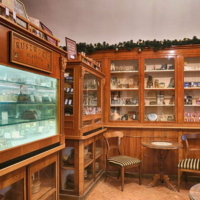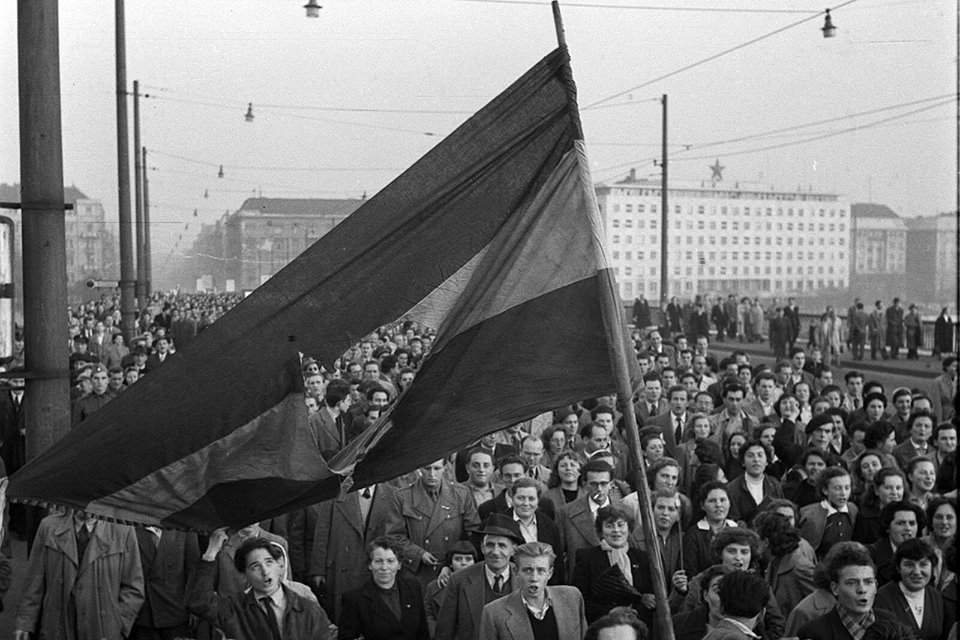Jaw-dropping discovery: North Korean students fought for Hungary against the Soviets in Budapest
Mózes Csoma, a Hungarian Koreanist researching current and historical North Korean events and the Korean-Hungarian relationship, unearthed intriguing documents and conducted interviews with Korean students helping or opposing the Hungarian freedom fighters of 1956.
Hungary’s struggle against Soviet Communism
From 1944 to 1954, the Soviet Union occupied Hungary, with the Red Army lingering despite armistices and the Paris Peace Treaty (1947). Hungarian democratic factions tried to establish a post-WWII democracy, backed by the majority of Hungarians. However, they faced resistance from the Communist Party bolstered by Soviet forces, followed by a nightmarish scenario.
Under Mátyás Rákosi’s Communist regime, Hungary endured cruelty akin to Stalin’s Soviet Union, teetering on the edge of economic collapse. Consequently, an uprising ensued, compelling over a thousand North Korean students, who had integrated into Hungarian society having local friends and romantic partners, to make a choice between the invading Soviets and the resisting Hungarian freedom fighters.
North Korea: a Communist country sending orphans to Hungary
To the surprise of many, these students stood by Hungary. Today, North Korea resembles a medieval kingdom where the Kim dynasty dictates life and death. Despite following Communist ideology in theory, one might have anticipated loyalty from these students towards their homeland, particularly after the brutal Korean War (1950-1953) when their fathers and grandfather fought and died against the American and South Korean troops. Nevertheless, the group of youngsters rejected Communism.
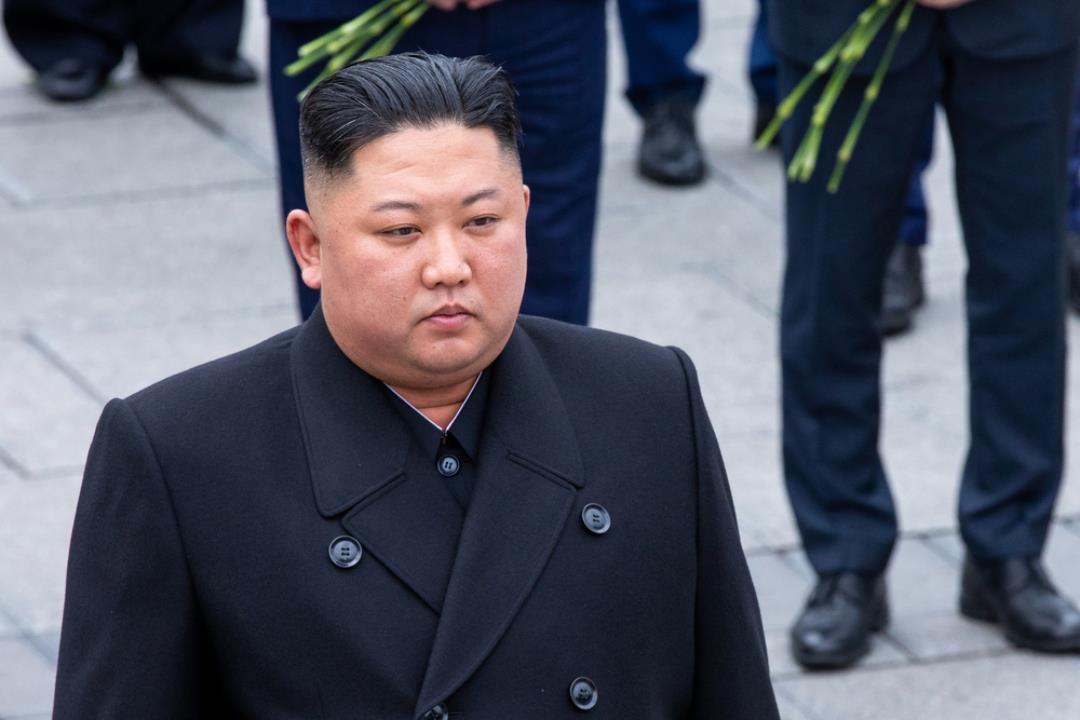
Kim Jong Un. His grandfather ruled North Korea during the Korean War and after the armistice. Jong Un studied in Switzerland when he was young. Source: depositphotos.com
The first group of Korean students arrived in Hungary in 1951, all orphaned by the war. The impetus to host Korean children in Hungary stemmed from Erzsébet Kovács, a fourth-grader from Csepel, Budapest (Budapest’s 21st district), who penned a letter to Mátyás Rákosi, subsequently forwarded to the North Korean Embassy. This letter was forwarded to Mr Csoma’s presentation during Researchers’ Night in Hungary, as reported by Képmás.
Diligent North Korean students
Hungary tended to the Korean orphans with great care, providing them with free education and accommodation. In 1953, the Hungarian government established a children’s home for them in Budapest’s enchanting Hűvösvölgy area. These students were enrolled in prestigious Budapest schools, where they diligently tackled language barriers and academic subjects. Remarkably, one student even delved into Shakespeare’s King Lear through Mihály Vörösmarty’s archaic translation.
While Korean university students received meager scholarships inadequate to cover their sustenance, the language barrier proved more daunting. In an interview with Mr Csoma, one student revealed that it took them a night to translate a single page of their Hungarian textbook. The first Hungarian-Korean dictionary was compiled by Dr Aladár Sövény, a Japanese teacher at Sándor Petőfi Secondary School, meticulously inscribing Korean characters with a pen.
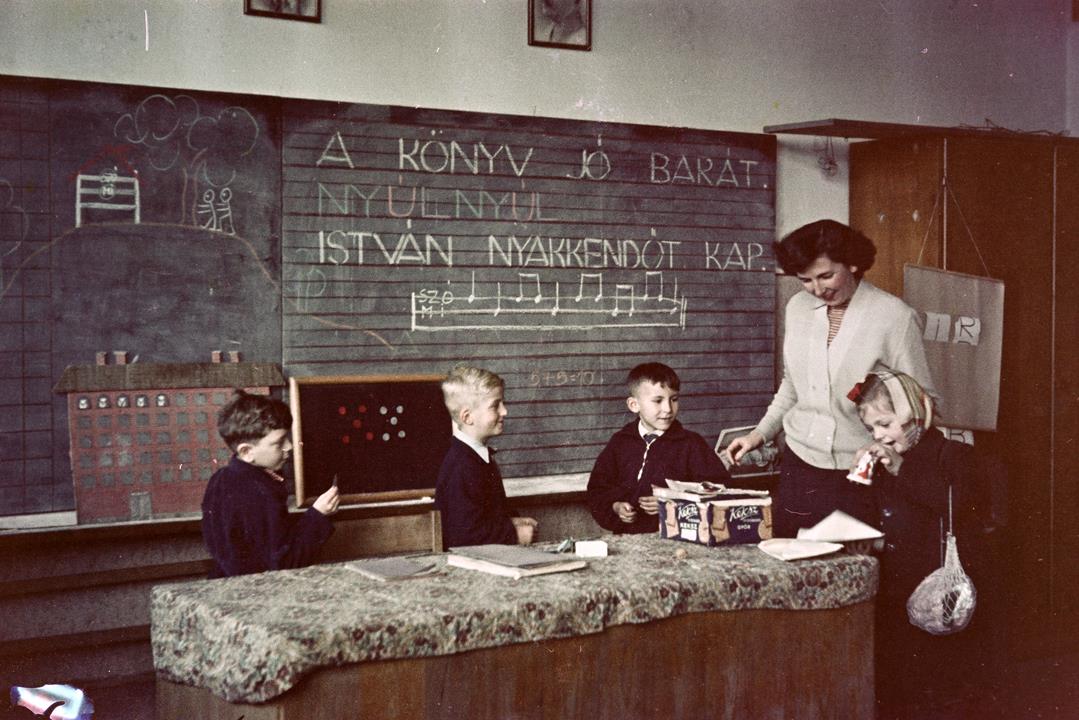
School room in Hungary in 1955. Source: Fortepan / Reményi József
Over time, many Korean students mastered Hungarian and forged friendships in Hungary, juxtaposed against North Korea’s enduring poverty, warfare and brutal dictatorship.
North Korean students rally with the freedom fighters
Amidst the October 1956 revolution, as thousands of Hungarian workers and students manned barricades against Soviet incursions, numerous North Korean students joined the fray. Despite returning from the front lines to resume their studies in Hungary, they taught valuable things to the freedom fighters about modern weaponry. For instance, Zang Gi Hong instructed insurgents at Móricz Zsigmond körtér on grenade and mortar usage, while Kim Ok, a reader of King Lear, battled alongside freedom fighters at Széna Square, as reported by Helló Magyar.
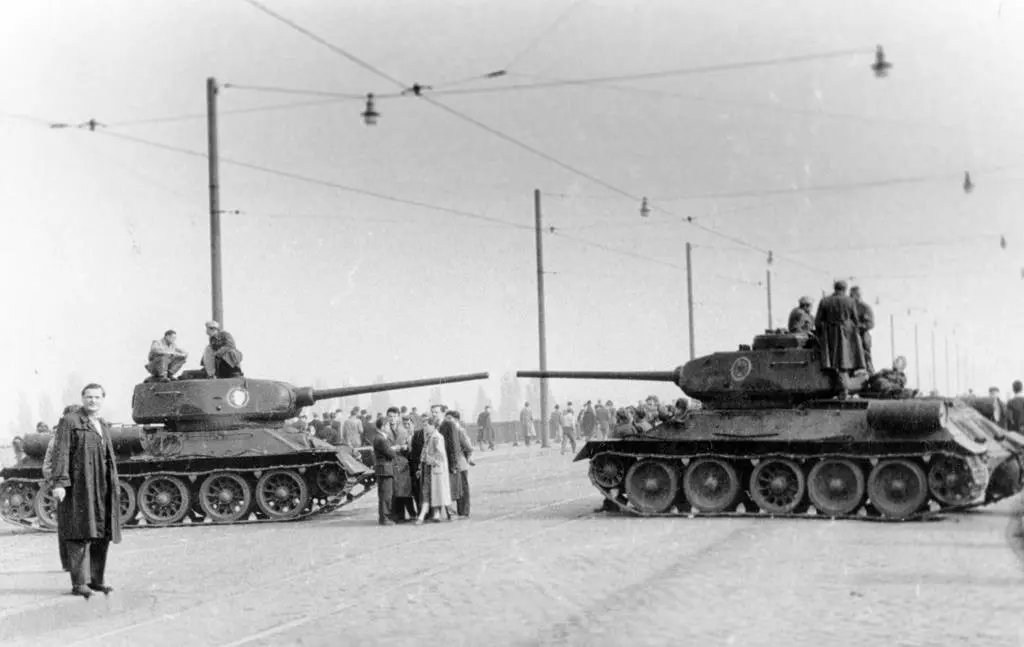
Soviet tanks in Budapest 1956 revolution. Photo: Zsolt Házy/fortepan
A tragic ending
After the fall of the revolution, most Korean students were forced to return home. That is how Pyongyang wanted to “save” them from being “infected” by Hungary’s “dangerous” ideologies.
Only a handful managed to complete their studies in Hungary. Some had already formed romantic bonds in Hungary, with Mr Csoma recounting three marriages between Hungarian women and Korean men. However, these marriages were doomed in North Korea, where the state dictated such brutal conditions that made their survival impossible.
Read also:
please make a donation here
Hot news
What happened today in Hungary? — 2 May, 2024
Outrageous: Teenager arrested for planning mosque attack in Hungary – VIDEO
You can now buy tickets for exhibitions and sightseeing tours on Wizz Air platforms!
March of the Living to be held in Budapest this Sunday
Unforeseen: Hungarian guest workers are leaving Austria – here is why
OECD sees the Hungarian economy gaining strength


